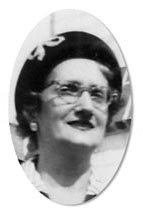 |
 |
|
 |
 |
 |
 |
 |
|
 |
 |
 |
 |
The Gertrude Forkosh Waxler Lectureship
7/8/10 - 9:00 AM - Lillie Auditorium
"Consequences of Aneuploidy"
Angelika Amon
Massachusetts Institute of Technology, Department of Biology
Dr. Angelika Amon is a professor in the Department of Biology, the David H. Koch Institute for Integrative Cancer Research at MIT. Dr. Amon is also a Howard Hughes Medical Institute Investigator. As a Whitehead Fellow and faculty member in the Department of Biology at MIT, Dr. Amon studied the molecular mechanisms of chromosome segregation and how this process is integrated with other cell cycle events. This led Dr. Amon to her current research, which attempts to characterize the effects of aneuploidy on cell physiology in yeast and in the mouse. These studies provide the foundation for further research on how aneuploidy impacts cell physiology.
Dr. Amon received a Ph.D. in biology from the University of Vienna in 1993 and completed post-doctoral work at the Whitehead Institute in 1995. She serves on the editorial boards of Science, Genes & Development, Cell, and Current Biology. Dr. Amon is the recipient of many honors and awards including the Eli Lilly and Company Research Award, the Paul Marks Prize for Cancer Research, and the National Academy of Sciences Award for Molecular Biology.
 |
 |
|
|
About the Forkosh Waxler Lectureship
The Gertrude Forkosh Waxler Lectureship was established by The FMH Foundation, David S. Forkosh, M.D., President, in memory of his aunt, affectionately known as Gussie. Gertrude Forkosh Waxler was born and raised in Chicago – the eldest of six children.
As the eldest child, Ms. Waxler was often responsible for the care of younger siblings. Although she did not have the advantage of a college degree, Ms. Waxler recognized the value of education and understood its importance to one’s future. She worked in a jewelry store for thirty years using her income to put her brothers and brothers-in-law through medical and dental school.
Among family members, she is remembered for her loyalty, devotion, and sacrifices. Ms. Waxler is one of many women who labored selflessly so that others might prosper. She possessed the spirit of philanthropy and the desire to make a difference. Today we celebrate Ms. Waxler’s legacy by dedicating this lecture in her honor.
|
| |
|
|
 |
 |
|